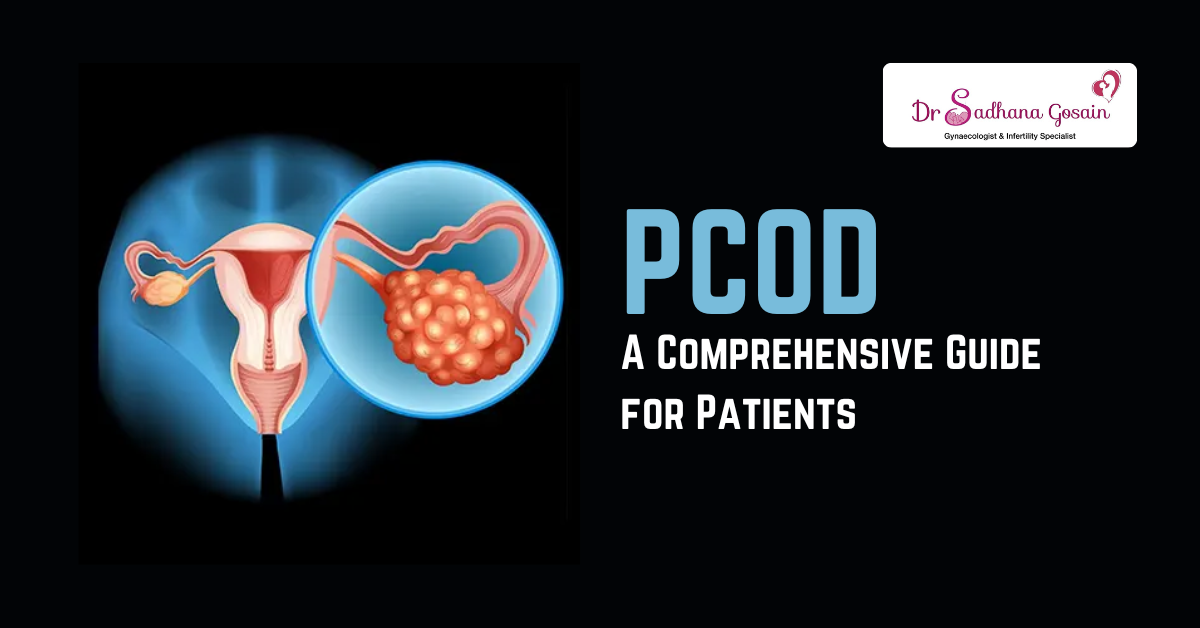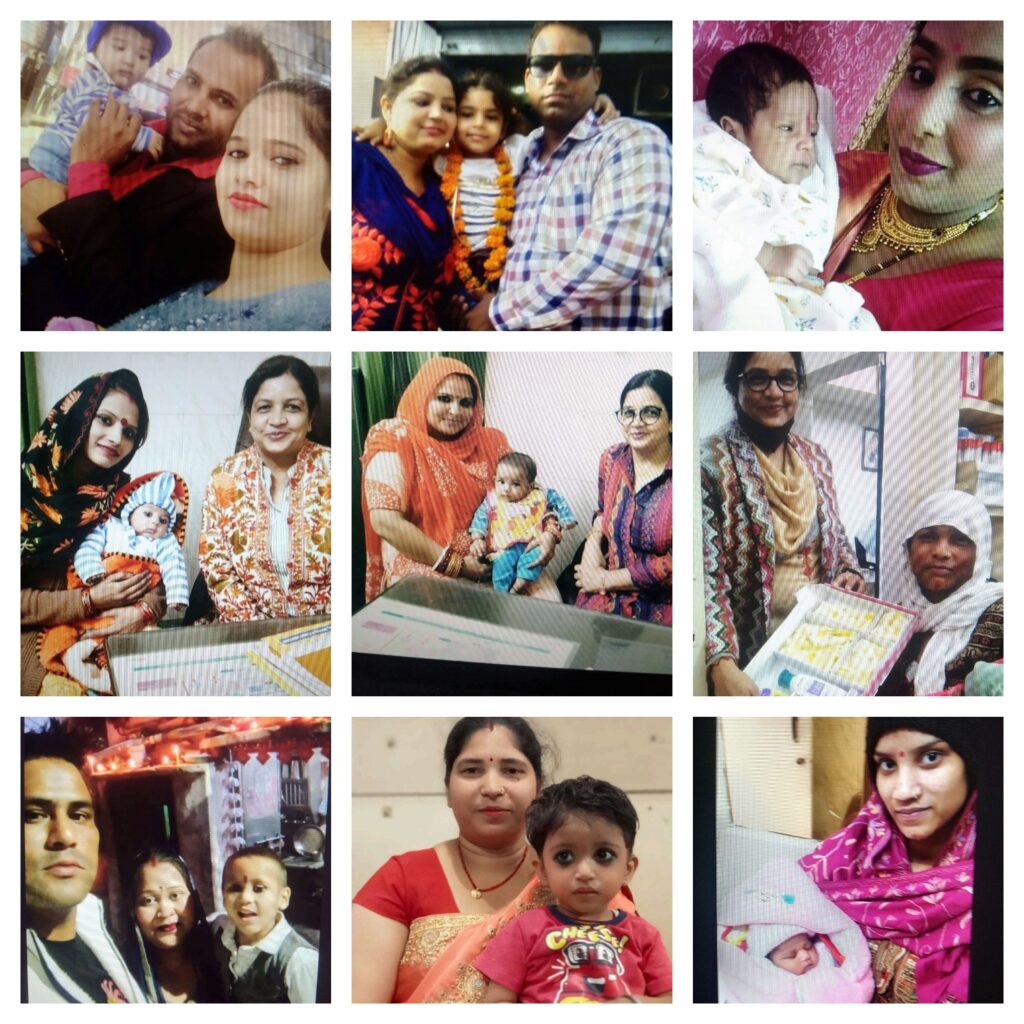PCOD: A Comprehensive Guide for Patients
Polycystic Ovarian Disease (PCOD) is a common hormonal disorder affecting millions of women worldwide. Despite its prevalence, many women struggle to understand the condition and how to manage it effectively.
This blog aims to provide an in-depth, patient-centric overview of PCOD, including its causes, symptoms, diagnosis, treatment options, and lifestyle changes to manage the condition.
What is PCOD?
PCOD, or Polycystic Ovarian Disease, is a hormonal imbalance in which the ovaries produce an excessive amount of androgens (male hormones). This hormonal imbalance can lead to the development of multiple small cysts in the ovaries, disrupting their normal functioning.
While PCOD is not life-threatening, if left unmanaged, it can lead to complications such as infertility, diabetes, obesity, and cardiovascular diseases.
Causes of PCOD
The exact cause of PCOD is not fully understood, but several factors contribute to its development:
- Genetics: A family history of PCOD increases the likelihood of developing the condition.
- Insulin Resistance: High insulin levels can trigger the ovaries to produce more androgens, worsening PCOD symptoms.
- Inflammation: Chronic inflammation has been linked to elevated androgen levels.
- Lifestyle Factors: Poor diet, lack of exercise, and stress can exacerbate the condition.
Symptoms of PCOD
Women with PCOD may experience a wide range of symptoms, including:
- Irregular menstrual cycles
- Excessive hair growth (hirsutism) on the face, chest, or back
- Acne and oily skin
- Thinning hair or hair loss
- Weight gain, particularly around the abdomen
- Difficulty in conceiving (infertility)
- Fatigue and mood swings
If you notice any of these symptoms, it is essential to consult a gynecologist for early diagnosis and management.
Diagnosis of PCOD
PCOD is typically diagnosed based on a combination of:
- Medical History: Discussing symptoms and family history of hormonal issues.
- Physical Examination: Checking for physical signs like excess hair growth and acne.
- Blood Tests: Measuring hormone levels to identify imbalances.
- Ultrasound: Detecting the presence of cysts in the ovaries.
Early diagnosis is crucial to prevent complications and start a personalized treatment plan.
Treatment Options for PCOD
Treatment for PCOD focuses on managing symptoms and improving quality of life. Some common treatment options include:
1. Lifestyle Changes
- Adopting a balanced diet rich in whole grains, lean proteins, and healthy fats
- Regular exercise to improve insulin sensitivity and maintain a healthy weight
- Stress management techniques like yoga and meditation
2. Medications
- Birth Control Pills: To regulate menstrual cycles and reduce androgen levels
- Metformin: To improve insulin resistance
- Anti-Androgen Medications: To address excessive hair growth and acne
3. Fertility Treatments
For women trying to conceive, fertility medications or assisted reproductive technologies like IVF may be recommended.
4. Surgical Options
In severe cases, ovarian drilling (a minimally invasive surgery) may be performed to improve ovulation.
Lifestyle Tips for Managing PCOD
Managing PCOD effectively requires a holistic approach. Here are some actionable tips:
- Maintain a Healthy Diet: Focus on low glycemic index (GI) foods to control blood sugar levels.
- Stay Active: Aim for at least 30 minutes of moderate exercise most days of the week.
- Prioritize Sleep: Ensure 7-8 hours of quality sleep each night to regulate hormones.
- Stay Hydrated: Drink plenty of water throughout the day.
- Avoid Smoking and Alcohol: These can worsen hormonal imbalances.
FAQs About PCOD
1. What is the difference between PCOD and PCOS?
PCOD refers to Polycystic Ovarian Disease, while PCOS (Polycystic Ovary Syndrome) is a more severe endocrine disorder. Both conditions share similar symptoms, but PCOS often involves more systemic complications.
2. Can PCOD be cured?
While there is no permanent cure for PCOD, the condition can be effectively managed with lifestyle changes, medications, and regular medical check-ups.
3. Is PCOD hereditary?
Yes, a family history of PCOD or hormonal disorders increases the risk of developing the condition.
4. Can women with PCOD conceive naturally?
Many women with PCOD can conceive naturally with lifestyle modifications and medical support. In some cases, fertility treatments may be necessary.
5. How can I prevent PCOD from worsening?
Maintain a healthy lifestyle, manage stress, and seek regular medical advice to prevent complications.
View this post on Instagram
Book an Appointment with Dr. Sadhana Gosain
Dr. Sadhana Gosain is a renowned gynecologist in Delhi with extensive experience in diagnosing and treating PCOD. She provides patient-centric care tailored to individual needs.
Contact Details:
- Phone: tel:97111 46246
- Location: Delhi, India
Take the first step towards better health. Book your appointment today!
Final Thoughts
PCOD is a manageable condition, but it requires timely intervention and a proactive approach. By understanding the condition and making informed lifestyle choices, women can lead healthier and more fulfilling lives. Consult a healthcare professional like Dr. Sadhana Gosain for personalized care and guidance.
Also Read:



